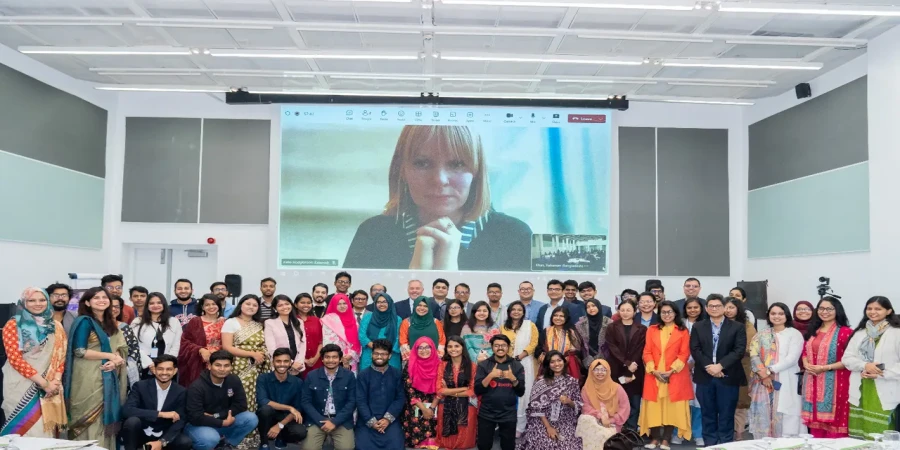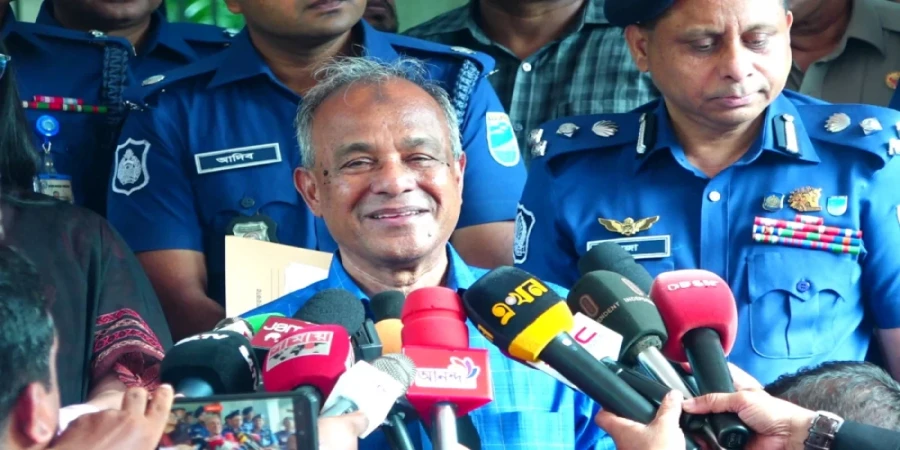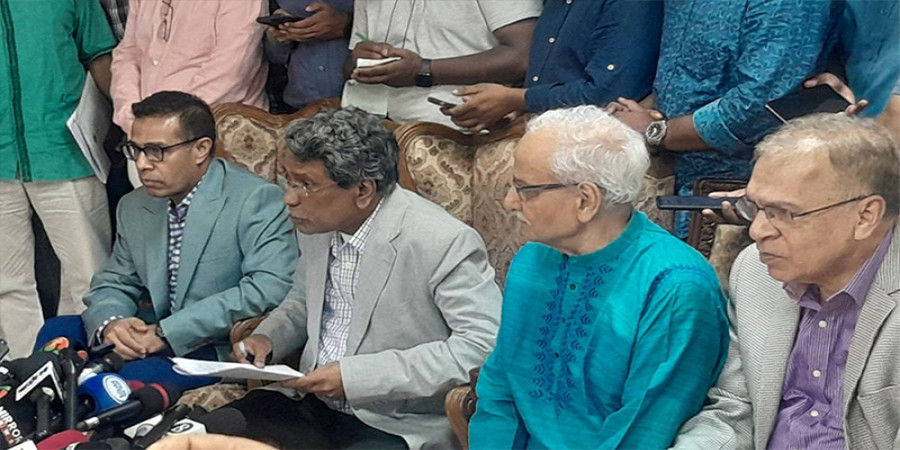
ছবি: Guests at the research report launch event titled Non-Formal Education for Youth-Led Change: Youth Development Programming in Bangladesh.
On December 12, the British Council, in collaboration with Leeds University, released a research report titled Non-Formal Education for Youth-Led Change: Youth Development Programming in Bangladesh. The event was held at the British Council’s auditorium and provided an in-depth analysis of various youth development activities in the country.
The research, funded by UK Research and Innovation's Arts and Humanities Research Council (AHRC), specifically focuses on the Leadership for Advancing Development in Bangladesh (Lead Bangladesh) project led by the British Council. The report explores the project’s role in empowering youth, promoting social justice, and influencing youth-led change.
The report offers valuable insights into how the Lead Bangladesh program has played a significant role in fostering social change through youth leadership by providing need-based and relevant training modules. The program, which emphasizes active citizenship, gender equality, and sustainable development goals (SDGs), has made notable strides in driving social transformation. Its success can be attributed to the participatory and inclusive approach adopted by the program.
The research also highlights the importance of Youth-Led Social Action Projects (SAPs), which have contributed to the practical application of theoretical knowledge and positive societal changes. Despite these successes, the report identifies several challenges faced during the program, including engaging and motivating youth, dealing with natural disasters, communicating with policymakers, community skepticism, and resource limitations.
Additionally, the research proposes several recommendations for enhancing the program's effectiveness. These include extending the program’s duration, increasing SAP budgets, strengthening follow-up and monitoring mechanisms, integrating additional SDG targets, and creating a continuous learning environment to improve overall program quality.
The event featured the participation of key figures, including the Secretary of the Ministry of Youth and Sports, Md. Rezaul Maksud Jahidi, who reaffirmed the ministry’s commitment to prioritizing the power of youth. He emphasized the need for more coordinated efforts to further the development of the country's young generation.
Among the notable attendees were Stephen Forbes, Country Director of British Council Bangladesh; Dr. Katie Hodgkinson from Leeds University's School of Politics and International Studies; Professor Mohammad Monirul Rashid from the University of Dhaka’s Institute of Education and Research; and other distinguished guests.
In his welcoming speech, Stephen Forbes spoke about the transformational impact of the Lead Bangladesh program and how the research report sheds light on the importance of youth development activities in bringing about change. He acknowledged the progress made in enhancing the knowledge and skills of youth, contributing to positive community change, while also recognizing the ongoing challenges that remain in empowering young people. He reiterated the British Council’s commitment to working with partners to continue advancing this cause.
Dr. Katie Hodgkinson presented the findings of the research in detail. Following her presentation, Professor Monirul Rashid and the British Council’s Non-Formal Education (NFE) team led a Q&A session, discussing the study's key themes and addressing queries from the attendees.
A discussion panel was also held during the event, focusing on the priorities for youth development in Bangladesh, such as skills for employment, democratic governance, and community engagement. The session provided an opportunity to highlight the pressing issues that need attention to further enhance the prospects for the youth population in the country.
repoter






